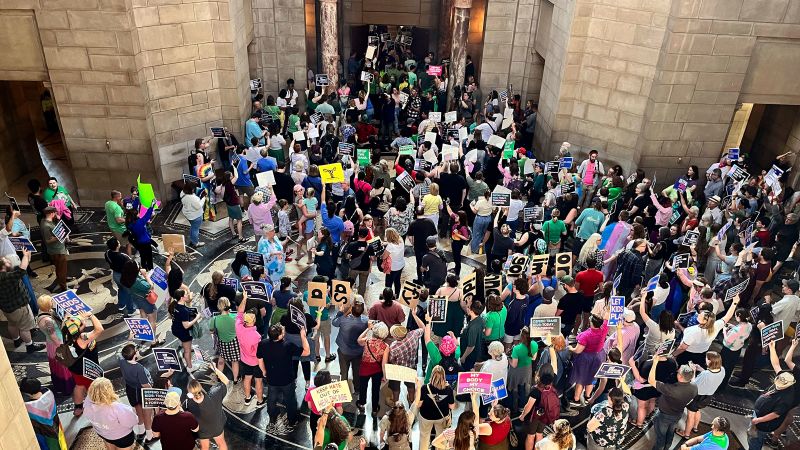The Nebraska Supreme Court recently ruled that competing measures regarding abortion rights can appear on the November ballot. This decision followed arguments in three lawsuits aiming to keep one or both of the state’s abortion initiatives off the ballot. Organizers for the initiatives successfully gathered well over the required number of signatures to qualify for the ballot. One measure would enshrine the right to abortion until viability in the state constitution, while the other would codify Nebraska’s existing 12-week abortion ban with exceptions for certain cases.
The lawsuits challenging the abortion initiatives argued that the measures violated the state’s prohibition against addressing multiple subjects in a single bill or ballot proposal. The court considered whether the proposals dealt with separate issues related to abortion, ultimately ruling in favor of both initiatives appearing on the ballot. These legal challenges are not unique to Nebraska, as a similar single-subject argument on abortion rights failed in the conservative Florida Supreme Court earlier this year. The Nebraska Supreme Court has faced similar challenges in the past, blocking a ballot initiative seeking to legalize medical marijuana due to violating single-subject rules.
The high court expedited its hearings and rulings on the abortion-related lawsuits to ensure a decision before ballots were printed. Nebraska will be the first state to have competing abortion amendments on the same ballot since the overturning of Roe v. Wade in 2022, turning abortion into a state-by-state issue. Abortion-related measures are on the ballot in nine states across the country this year, with voters in states with such initiatives typically supporting abortion rights. Despite the trend of Republican-controlled states implementing abortion bans, public opinion polls show growing support for abortion rights.
Fourteen states currently have bans on abortion across all stages of pregnancy with exceptions, while four states ban it after about six weeks. Nebraska and North Carolina are the only states that have implemented bans on abortion after 12 weeks of pregnancy. Additionally, several other states have measures on the ballot to protect access to abortion. While the impacts of these initiatives remain to be seen, it is evident that abortion rights continue to be a contentious issue, with states and voters across the country weighing in on the topic. Overall, the Nebraska Supreme Court’s decision to allow competing abortion measures on the ballot highlights the ongoing debate and varying perspectives on abortion rights at the state level.













